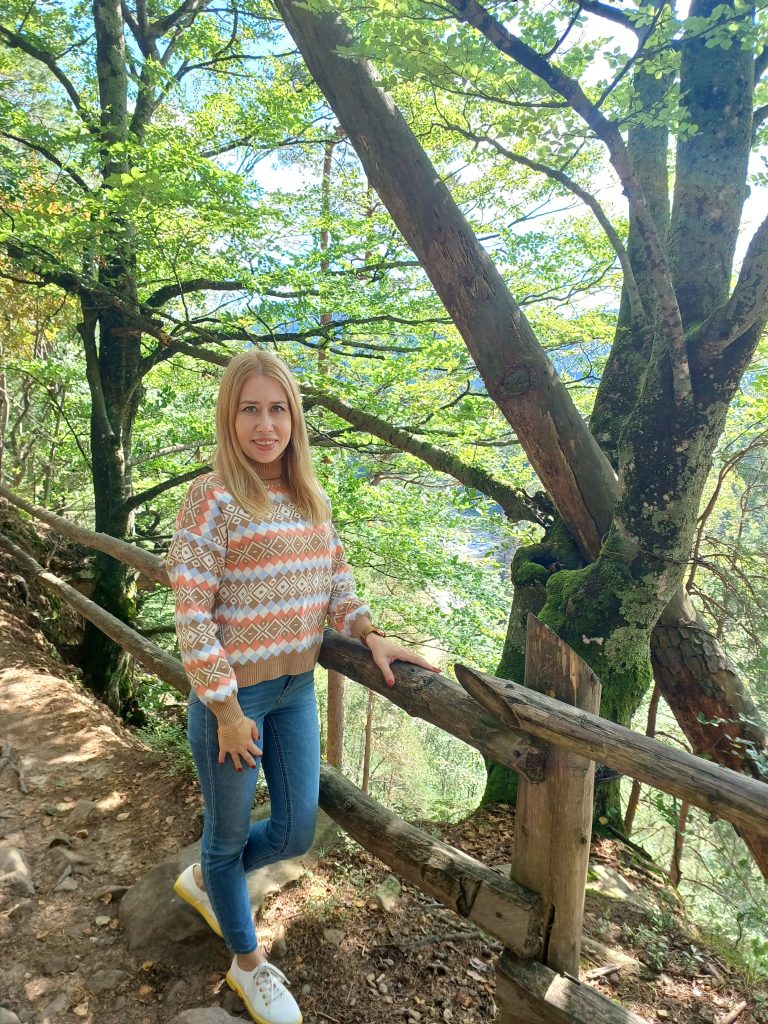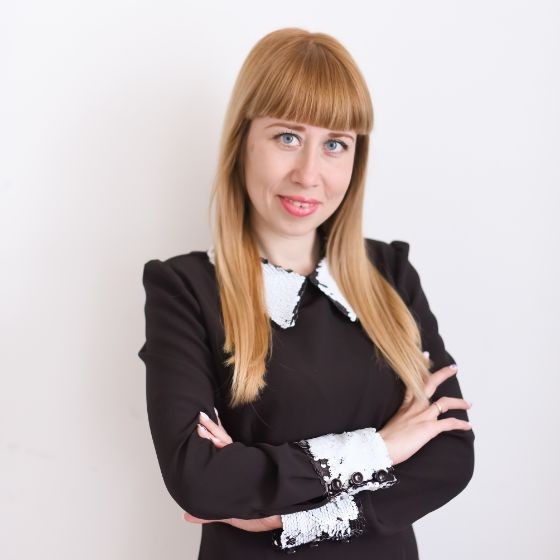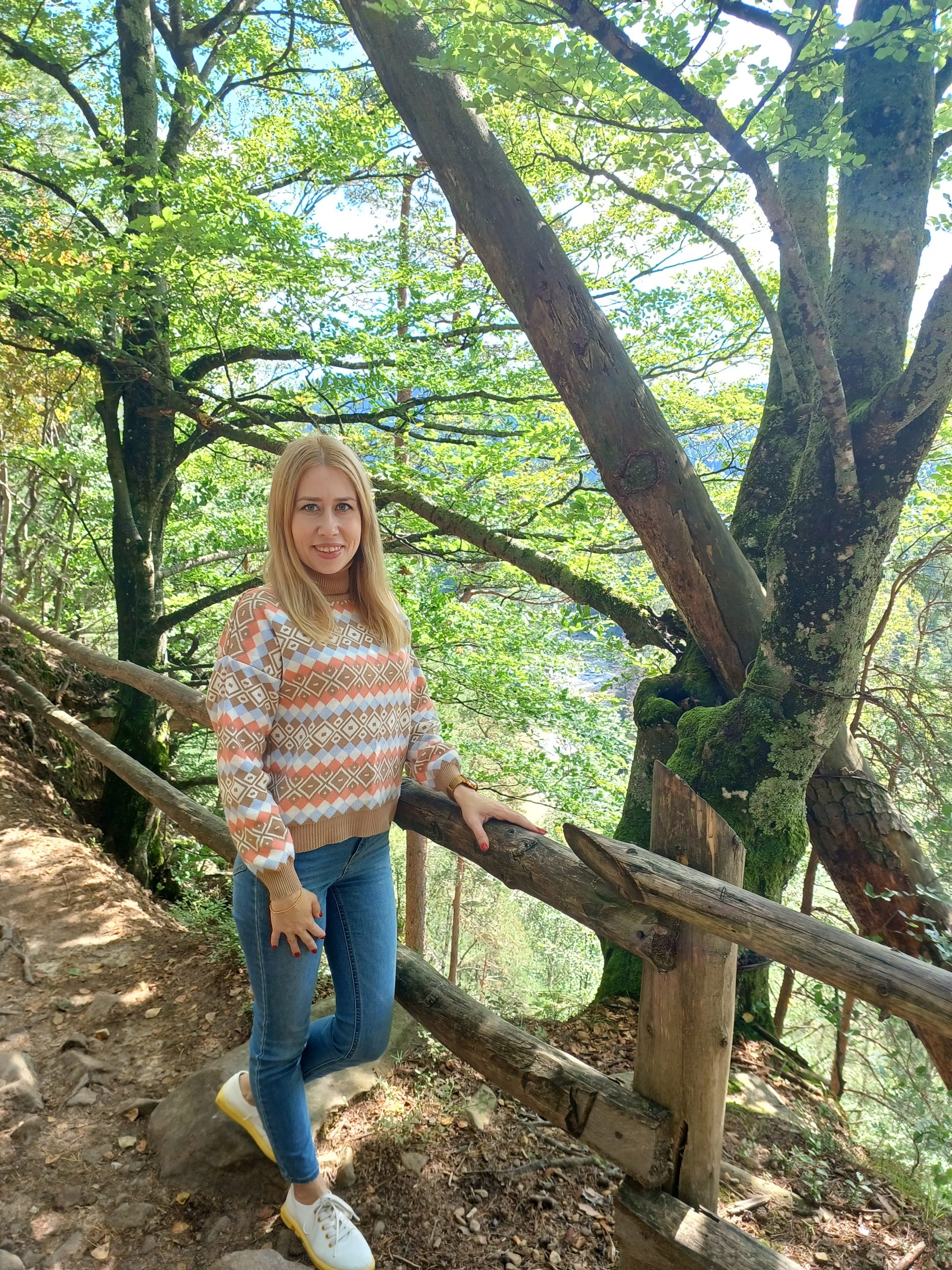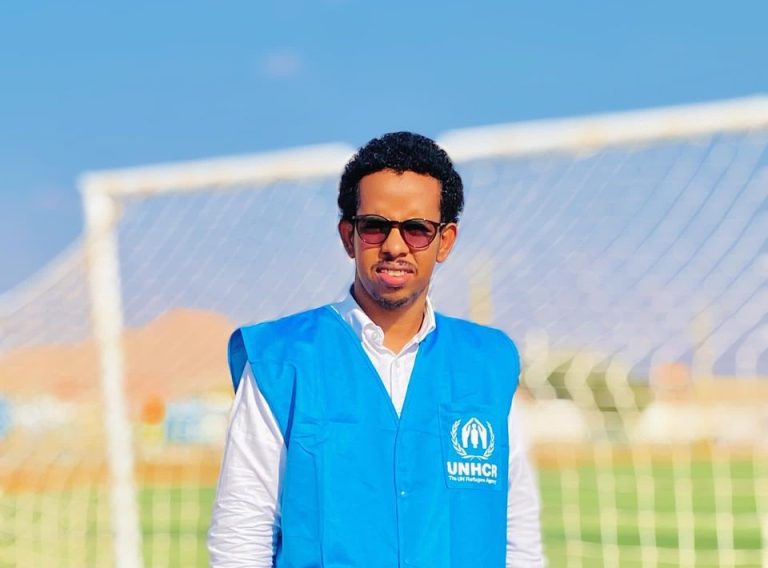Tetiana Prit, Programme Director at GOAL Global in Ukraine, became an HPass Bronze Level Learner of the Year, after completing 22 courses on Kaya.
We had a chance to chat with Tetiana and hear more about her career journey, favourite courses on Kaya and motivation to always keep learning.
Tell us about yourself
I am from Eastern part of Ukraine; I am deeply rooted in the culture and heritage of my homeland. However, my journey has been marked by resilience and adaptation, having experienced displacement and upheaval twice, in 2014 and 2022. Despite these challenges, I remain passionate about exploring diverse cultures through travel and advocating for education as a catalyst for positive change. When I’m not immersed in humanitarian work, you’ll often find me indulging in outdoor activities like hiking and cycling, finding solace and inspiration in nature’s embrace. I also adore reading.
What is your academic and professional background?
My educational journey has centered around language and literature, specialising in English. This academic foundation has provided me with a multifaceted understanding of communication and human expression, which I’ve applied throughout my career. My professional trajectory has been diverse, encompassing roles in education, project management, and humanitarian work. Each experience has contributed to my skill set, shaping me into a versatile and adaptable professional capable of navigating complex landscapes with precision and empathy. Currently, I am a Programme Director at GOAL Global in Ukraine.
What made you decide to connect your career with the humanitarian sector?
The decision to pivot my career towards the humanitarian sector was deeply influenced by my personal experiences of displacement and witnessing the plight of vulnerable communities. These experiences ignited within me a profound sense of purpose and a commitment to leveraging my skills and expertise to make a meaningful difference in the lives of others. I am driven by a relentless determination to contribute to humanitarian efforts, particularly in crisis-affected regions, where the need for assistance and compassion is most acute.

My journey has been marked by resilience and adaptation, having experienced displacement and upheaval twice, in 2014 and 2022. These experiences ignited within me a profound sense of purpose and a commitment to leveraging my skills and expertise to make a meaningful difference in the lives of others. Despite those challenges, I remain passionate about exploring diverse cultures through travel and advocating for education as a catalyst for positive change.
You’ve become HPass Bronze Level Learner of the Year! Can you tell us how you first heard about Kaya and what you liked about the platform?
My introduction to Kaya came through glowing recommendations from colleagues within the humanitarian sector. What struck me about the platform was its extensive catalogue of courses covering a wide array of topics relevant to humanitarian work. The user-friendly format and accessibility of the courses made it a valuable resource for professional development, empowering individuals like me to enhance our skills and knowledge base effectively.
According to our records, you’ve completed 22 courses on Kaya. Can you share about three courses you found the most useful for your role and/or the ones which were the most interesting to you?
Among the plethora of courses offered on Kaya, three stand out as particularly impactful for my role:
- PgMD Pro: Programme Management for Development Professionals
- Training and Development for Managers
- Collecting Data for the Inclusion of Persons with Disabilities in Humanitarian Action.
PgMD Pro: Programme Management for Development Professionals course has been instrumental in providing me with a comprehensive understanding of programme management in the context of development projects. It has equipped me with essential skills in project planning, implementation, and monitoring, enabling me to effectively manage humanitarian initiatives from inception to completion. I would recommend this course to all my colleagues.
As a program director, effective leadership and team development are paramount to achieving project goals. Training and Development for Managers course has provided me with valuable insights and strategies for fostering a positive and productive work environment, enhancing my ability to nurture talent, and drive organizational growth.
Collecting Data for the Inclusion of Persons with Disabilities in Humanitarian Action course has equipped me with practical tools and methodologies for gathering and analysing data, ensuring that our programmes are inclusive and responsive to the diverse needs of all individuals, including those with disabilities.

I would recommend PgMD Pro: Programme Management for Development Professionals course to all my colleagues. This course has been instrumental in providing me with a comprehensive understanding of programme management in the context of development projects. It has equipped me with essential skills in project planning, implementation, and monitoring, enabling me to effectively manage humanitarian initiatives from inception to completion.
We aim to provide more courses in various languages. Please share if you think it is helpful for local humanitarian workers to have learning opportunities in their native languages.
As a native Ukrainian speaker, I recognise the immense value of providing learning opportunities in local languages for humanitarian workers. By offering courses in Ukrainian and other native languages, organisations can bridge linguistic barriers and facilitate better understanding and application of concepts, ultimately enhancing the effectiveness and inclusivity of humanitarian interventions.
Can you share what motivates you to keep learning? How do you weave learning in your busy schedule?
My motivation to continue learning stems from a deep-seated desire for personal and professional growth. I am driven by a thirst for knowledge and a commitment to staying abreast of emerging trends, best practices, and innovations within the humanitarian sector. Despite the demands of my busy schedule, I prioritise learning by carving out dedicated time for professional development and actively seeking out courses that align with my career goals and aspirations.
What are your next learning and professional goals?
Looking ahead, my next learning goal is to deepen my understanding of gender-sensitive programming and its integration into humanitarian projects. I am eager to explore innovative approaches and best practices for promoting gender equality and empowering marginalised communities.
Professionally, I aspire to take on more leadership roles within the humanitarian sector, leveraging my skills and expertise to drive positive change and foster inclusive, sustainable development.
Additionally, I harbor aspirations to become a trainer in safeguarding and dedicate attention to courses on facilitating training sessions. Recognising the importance of safeguarding in humanitarian work, I aim to equip myself with the necessary skills to effectively train others in this critical area, ensuring the safety and well-being of all individuals involved in humanitarian initiatives. By focusing on courses related to facilitation training, I seek to enhance my ability to impart knowledge, foster discussion, and inspire meaningful learning experiences for participants. This endeavor aligns with my commitment to continuous growth and my passion for empowering others through education and capacity building.
The aim of featuring HLA learners on our website is to inform and inspire humanitarians and the HLA community. These articles do not constitute endorsement or recommendation of the individuals featured. Views expressed by members are solely their own.



